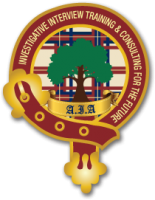Course Overview
The foundation of effective investigative interviewing isn’t technique—it’s mindset. This comprehensive training module addresses the most critical yet often overlooked aspect of investigative success: the mental framework that investigators bring to every interview. Research consistently demonstrates that an investigator’s mindset directly impacts interview outcomes, information quality, and case resolution.
Why This Training Matters
In an era of increased scrutiny on investigative practices and growing awareness of wrongful convictions, the need for science-based investigative approaches has never been more critical. Traditional accusatorial methods are not only less effective—they can actively undermine investigations. This course provides investigators with the science-based mindset and tools necessary to conduct interviews that produce reliable, accurate information while maintaining the highest ethical standards.
What You’ll Learn
This intensive training module equips participants with a deep understanding of the psychological foundations of effective investigative interviewing. You’ll discover how cognitive biases—universal human thinking patterns—can unconsciously compromise investigations, and learn practical strategies to recognize and mitigate their effects. The course emphasizes the transition from case-building to truth-seeking, providing investigators with the mental framework necessary for information-gathering interviews that produce superior results.
Core Learning Objectives
Participants will master the distinction between investigative and accusatorial mindsets, understanding how this fundamental difference affects every aspect of the interview process. You’ll develop expertise in recognizing and countering major cognitive biases, including confirmation bias, anchoring bias, and fundamental attribution error. The training provides practical skills in pre-interview planning, question formulation, and rapport building—all anchored in the investigative mindset that prioritizes information gathering over theory confirmation.
Practical Application
This isn’t theoretical training—it’s immediately applicable to your daily work. Through interactive exercises, case studies, and self-assessment tools, participants develop real-world skills in bias recognition, strategic planning, and adaptive interviewing. You’ll learn to formulate unbiased questions, build rapport ethically, and maintain investigative objectivity even under pressure. The training includes comprehensive planning templates and quick-reference guides that support implementation long after the training concludes.
Research Foundation
Every aspect of this training is grounded in peer-reviewed research from cognitive psychology, investigative psychology, and communication science. Participants gain insight into studies demonstrating the superiority of information-gathering approaches, the universal nature of cognitive biases, and the effectiveness of mindset-focused training interventions. This scientific foundation provides confidence in the methods while explaining why traditional approaches often fall short.
Target Audience
This course is essential for analysts, auditors, evaluators, fraud examiners, investigators, inspectors, human resources professionals, and anyone whose work involves gathering information through interviews. Whether you’re a seasoned investigator seeking to enhance your effectiveness or a new professional building foundational skills, this training provides value across experience levels and organizational contexts.
Training Format
The program combines engaging presentation with hands-on application. Participants work through real-world scenarios, practice bias recognition exercises, and develop personalized action plans for implementation. Interactive elements maintain engagement while ensuring concepts translate into practical skills. Comprehensive handouts and assessment tools support continued learning and professional development beyond the training session.
Long-Term Impact
Graduates of this training report significant improvements in interview outcomes, including increased information disclosure, reduced false confessions, and enhanced case resolution rates. More importantly, they develop sustainable practices that improve with experience rather than creating dependency on specific techniques. The investigative mindset becomes a career-long asset that enhances every professional interaction.
Course Materials
Participants receive extensive supporting materials, including a cognitive bias quick-reference guide, pre-interview planning template, question formulation checklist, and comprehensive self-assessment tool. These resources enable immediate implementation and ongoing professional development, ensuring training benefits extend well beyond the classroom experience.
Continuing Education Value
This training provides continuing education credits and demonstrates commitment to evidence-based practice. In an environment of increasing professional accountability, participants gain documentation of advanced training in scientifically-validated investigative methods. The course content aligns with current best practices in investigative interviewing and supports professional certification requirements.
Investment in Excellence
The investigative mindset isn’t just about better interviews—it’s about professional integrity, case quality, and career sustainability. In a field where the stakes are high and mistakes costly, this training provides the foundation for excellence that serves investigators throughout their careers. The return on investment manifests in improved case outcomes, reduced litigation risk, and enhanced professional reputation.

